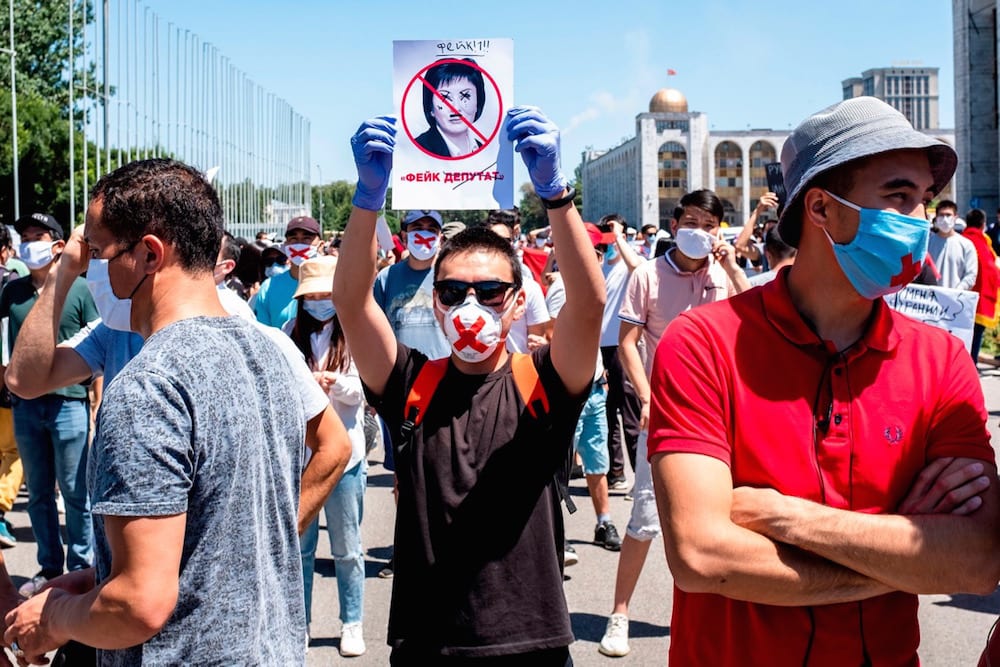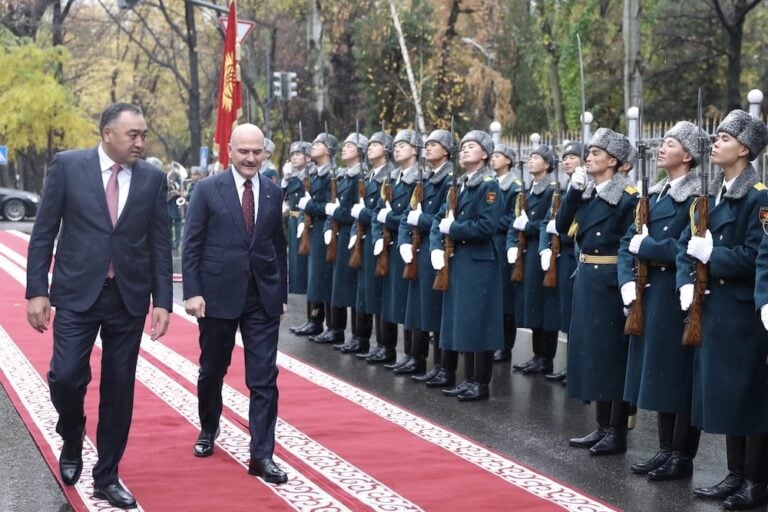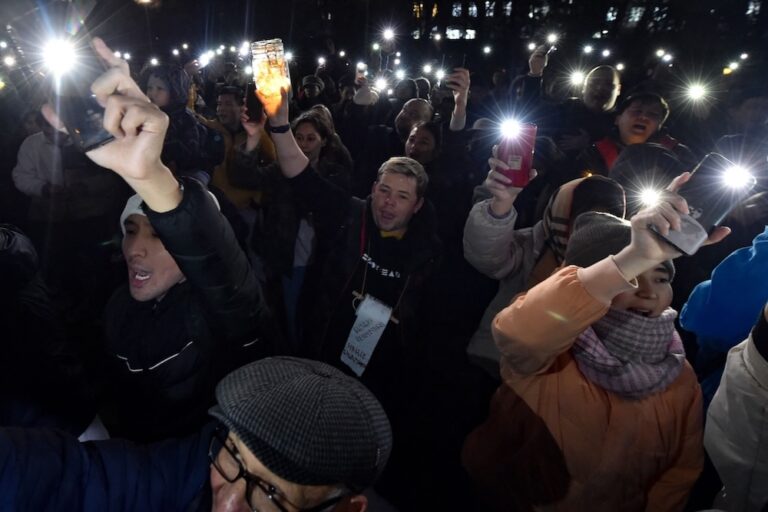The law empowers an unnamed “authorized state body” to shut down or block websites containing information deemed to be “false” or “inaccurate,” without a court order, on the basis of a complaint by either a private person or legal entity, who are the subject of the information.
This statement was originally published on hrw.org on 3 August 2021.
Kyrgyzstan’s President Sadyr Japarov should veto the new law on “false information” when it reaches him for signature, Human Rights Watch said today. The law authorizes the government to block certain types of information without a court order, in violation of the right to freedom of expression.
On July 28, 2021, Kyrgyzstan’s caretaker parliament passed the Law on Protection from False and Inaccurate information. The law empowers an unnamed “authorized state body” to shut down or block websites containing information deemed to be “false” or “inaccurate,” without a court order, on the basis of a complaint by either a private person or legal entity such as a company, who are the subject of the information. “False” or “inaccurate” information is defined as information that defames the honor and dignity or undermines the reputation of a private or legal entity, offenses that are already protected under existing defamation legislation.
“The new ‘false information’ law poses a serious threat to free expression and media freedom in Kyrgyzstan, and would deeply mar the country’s human rights reputation,” said Syinat Sultanalieva, Central Asia researcher at Human Rights Watch. “It paves the way to state-managed censorship and runs counter to Kyrgyzstan’s national and international human rights obligations.”
The law would open the door to restrictions on speech that do not meet the requirements for defamation, Human Rights Watch said.
The new law also requires real-name registration from all internet users and makes internet providers responsible for submitting this data to a state-run “single registry system.” This enhances the authorities’ capacity to surveil, target, and censor individual users, and therefore amounts to a violation of users’ right to privacy, Human Rights Watch said. This provision could have chilling effects on government critics, particularly those who wish to expose corruption.
The law does not clarify which state body would be responsible for carrying out these provisions, nor does it specify sanctions for non-compliance.
The “false information” law appears to have been adopted in violation of the parliament’s internal regulations. In July 2020, then-President Sooronbay Jeenbekov vetoed the law’s predecessor, the draft Law on Manipulation of information. Shortly afterward, that draft was returned to parliament for further work. Under art. 62 of the Law on Parliamentary Regulations, parliament had 10 days to either agree with the veto, citing the president’s objections, overcome the veto by holding a revote, or form a reconciliation group that would develop a compromise draft of the law that they would put to a new vote in parliament.
Parliament decided on the third option but established the reconciliation group nearly a year after the president’s veto, on May 31, 2021, well after the 10-day limit. Lawyers at Media Policy Institute, a local media organization, expressed concern that the group did not invite representatives of civil society and media outlets to participate, as it was required to under the president’s veto decision.
The reworked draft law was submitted to parliament for consideration on June 30, 2021, but members did not garner the required two-thirds support they needed to pass the bill in its first reading.
The draft law was put to another vote one month later, shortly after the president held a tea party at his residence for members of parliament. Following the gathering, 97 members of parliament voted for the bill, with only 5 opposed.
Human Rights Watch reiterated its deep concern that Kyrgyzstan’s caretaker parliament has repeatedly overstepped its mandate to pass far-reaching laws that violate international human rights norms.
Kyrgyzstan is a party to the International Covenant on Civil and Political Rights, which guarantees the rights to privacy, freedom of expression, association, and peaceful assembly. Kyrgyzstan’s international partners, in particular the European Union and United States, should quickly, publicly, and privately register their concerns with President Japarov about this threat to free speech and media freedom.
“President Japarov should veto the ‘false information’ law and keep his campaign promise to oppose censorship in the country,” Sultanalieva said. “Kyrgyzstan has prided itself on the relative media and speech freedoms afforded its people compared with elsewhere in the region. This law would put Kyrgyzstan on the path to denying these freedoms.”



